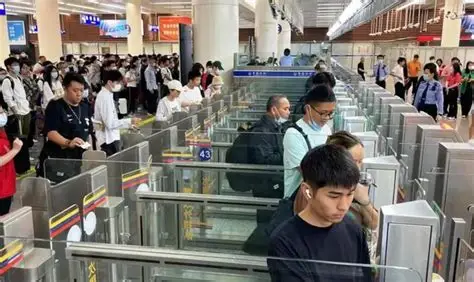In the wave of globalization, immigration has become an important choice for many people planning a new chapter in their lives. However, the interview stage of the immigration application process often puts applicants under immense pressure—language barriers, cultural differences, policy changes… any detail can affect the final outcome. How to overcome these bottlenecks? The answer may lie in the annual Immigration Expo. As an industry event that brings together global immigration programs, policy interpretations, and professional services, the Immigration Expo is not only a “one-stop platform” for obtaining information but also a “secret weapon” for enhancing interview competitiveness.
Precise Matching: From “Casting a Wide Net” to “Customized” Screening Logic
The core of immigration applications lies in “suitability.” Immigration policies vary significantly between countries: some focus on skilled workers, some favor investment capabilities, and some prioritize family reunification. Traditional applicants often fall into the trap of “casting a wide net” due to information asymmetry, wasting energy and reducing their success rate. The Immigration Expo, by integrating high-quality global programs, provides applicants with a “menu-style” selection. For example, a “European Skilled Migrant Visa Zone” at an expo showcased in-demand occupation lists from multiple countries for fields such as IT, healthcare, and engineering. Applicants could quickly identify their target countries based on their professional background. Professional consultants were also on-site to assess the match between applicants’ education, work experience, and target programs, preventing rejection due to “unmet requirements.” This precise screening logic shifted applicants from “playing the lottery” to “targeted efforts,” laying the foundation for a successful interview.
Policy Foresight: Understanding Immigration Officers’ “Key Assessment Points”
Immigration policies are not static; economic conditions, social needs, and even international relations can trigger policy adjustments. For example, one country temporarily relaxed immigration requirements for nurses due to increased pressure on its healthcare system; another tightened the investment immigration threshold due to rising housing prices. Failure to keep abreast of these changes could lead to outdated application materials or off-topic interview responses. Immigration expos serve as a “weathervane” for policy dynamics—organizers invite immigration officials and policy experts to interpret the latest trends and release a “Global Immigration Policy White Paper.” Applicants can learn about the key assessment points of their target countries in advance by participating in policy interpretation sessions and watching live replays. For example, in a lecture on “Canadian Federal Skilled Worker Immigration,” experts clearly pointed out that “language proficiency (CLB9 or above) and work experience (3+ years) are currently advantageous factors.” Applicants can adjust their preparation accordingly, naturally feeling more confident during the interview.
Practical Exercises: Simulated Interviews to Overcome “Cultural Barriers”
Immigration interviews are not only a test of language skills but also a challenge of cultural adaptability. For example, immigration officers in one country might assess whether an applicant’s values align with local society by asking them to “describe a teamwork experience”; another country might examine their sense of social responsibility by asking them to “handle community conflicts.” These “hidden assessment points” often catch applicants off guard. The simulated interview service offered at the Immigration Expo is key to overcoming this challenge. Professional mentors will simulate real interview scenarios, providing comprehensive guidance on everything from body language and logical responses to cultural taboos. For example, one applicant was criticized in a mock interview for “answering questions too directly and lacking polite language.” After adjustments, they received bonus points in the official interview for “appropriate expression and respect for procedures.” This kind of practical training allows applicants to adapt to the communication styles of different countries in advance, avoiding missed opportunities due to “cultural misunderstandings.”
The value of immigration expos lies not only in providing information, but also in building a full-chain support system for applicants “from preparation to clearance.” Whether it’s accurately matching programs, anticipating policy changes, or improving cultural adaptability through mock interviews, these services can significantly increase the success rate of immigration applications. For applicants eager to start a new life, attending an authoritative immigration expo may be the “golden key” to unlocking global opportunities.
Shanghai Formote Exhibition Service Co., Ltd. has been deeply involved in the immigration industry’s exhibitions for many years, using professional services to help applicants connect with global resources and embark on a worry-free immigration journey.







